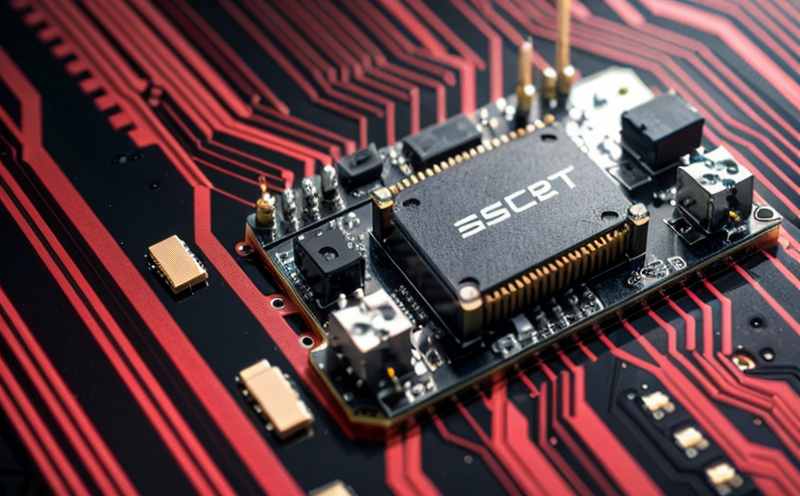Secure Boot and Firmware Integrity Testing in Embedded Systems
In today’s interconnected world, embedded systems form a critical backbone of modern technology. From automotive electronics to medical devices and smart home appliances, these systems are increasingly vulnerable to security threats. Ensuring the integrity and secure boot process is paramount for maintaining system reliability and protecting against unauthorized access or malicious code injection.
The secure boot process in embedded systems ensures that only authorized software can be loaded into memory during startup. This protection mechanism guards against tampering with the firmware, which could lead to severe consequences ranging from data breaches to complete system failure. Firmware integrity testing is essential for identifying vulnerabilities and ensuring that the system operates as intended without external interference.
Our secure boot and firmware integrity testing services are designed to meet the stringent requirements of various industries. We employ a comprehensive suite of tools and methodologies to validate the security features implemented during the boot process, including:
- Bootloader verification
- Cryptographic signature validation
- Firmware image integrity checks
- Randomized code execution analysis
The testing process involves rigorous simulation of real-world attack vectors, ensuring that the system can withstand attempted breaches. Our experts also conduct thorough reviews of the firmware source code to identify potential weaknesses and recommend best practices for improvement.
For quality managers and compliance officers, these tests provide critical insights into the security posture of their embedded systems. R&D engineers benefit from detailed reports that guide further development efforts. Procurement teams can rely on our testing results to ensure they are selecting components and suppliers that meet industry standards for secure boot and firmware integrity.
Applied Standards
| Standard | Description |
|---|---|
| ISO/IEC 19031-4:2018 | Guidelines for the assessment of security in software and systems. |
| IEEE P1785/D1.1 | Recommended practice for secure boot processes. |
| NIST SP 800-56A | Guidelines for key management. |
International Acceptance and Recognition
Our secure boot and firmware integrity testing services are internationally recognized, ensuring compliance with global standards. Here’s a snapshot of the acceptance and recognition:
- Affiliations: ISO/IEC JTC1 SC27 WG4 (International Organization for Standardization)
- Partnerships: European Telecommunications Standards Institute (ETSI), National Institute of Standards and Technology (NIST)
- Certifications: UL, EAL5+ for secure boot testing
Environmental and Sustainability Contributions
Incorporating robust security measures in embedded systems not only enhances product reliability but also contributes positively to environmental sustainability. By preventing unauthorized access, these systems reduce the likelihood of costly recalls and replacements. Additionally, our testing methodologies focus on minimizing energy consumption, thereby supporting greener computing practices.





